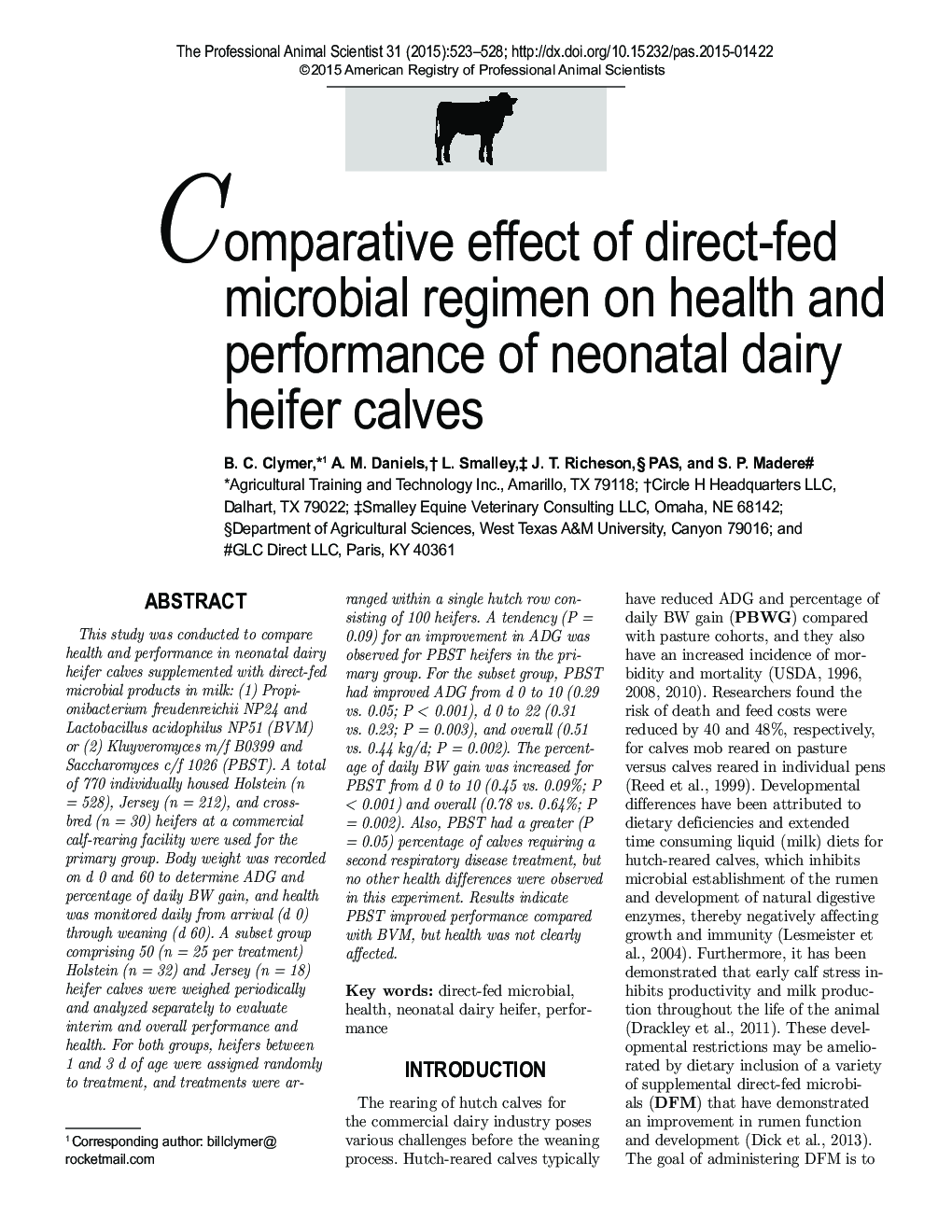| Article ID | Journal | Published Year | Pages | File Type |
|---|---|---|---|---|
| 2453790 | The Professional Animal Scientist | 2015 | 6 Pages |
Abstract
This study was conducted to compare health and performance in neonatal dairy heifer calves supplemented with direct-fed microbial products in milk: (1) Propionibacterium freudenreichii NP24 and Lactobacillus acidophilus NP51 (BVM) or (2) Kluyveromyces m/f B0399 and Saccharomyces c/f 1026 (PBST). A total of 770 individually housed Holstein (n = 528), Jersey (n = 212), and crossbred (n = 30) heifers at a commercial calf-rearing facility were used for the primary group. Body weight was recorded on d 0 and 60 to determine ADG and percentage of daily BW gain, and health was monitored daily from arrival (d 0) through weaning (d 60). A subset group comprising 50 (n = 25 per treatment) Holstein (n = 32) and Jersey (n = 18) heifer calves were weighed periodically and analyzed separately to evaluate interim and overall performance and health. For both groups, heifers between 1 and 3 d of age were assigned randomly to treatment, and treatments were arranged within a single hutch row consisting of 100 heifers. A tendency (P = 0.09) for an improvement in ADG was observed for PBST heifers in the primary group. For the subset group, PBST had improved ADG from d 0 to 10 (0.29 vs. 0.05; P < 0.001), d 0 to 22 (0.31 vs. 0.23; P = 0.003), and overall (0.51 vs. 0.44 kg/d; P = 0.002). The percentage of daily BW gain was increased for PBST from d 0 to 10 (0.45 vs. 0.09%; P < 0.001) and overall (0.78 vs. 0.64%; P = 0.002). Also, PBST had a greater (P = 0.05) percentage of calves requiring a second respiratory disease treatment, but no other health differences were observed in this experiment. Results indicate PBST improved performance compared with BVM, but health was not clearly affected.
Related Topics
Life Sciences
Agricultural and Biological Sciences
Animal Science and Zoology
Authors
B.C. Clymer, A.M. Daniels, L. Smalley, J.T. PAS, S.P. Madere,
